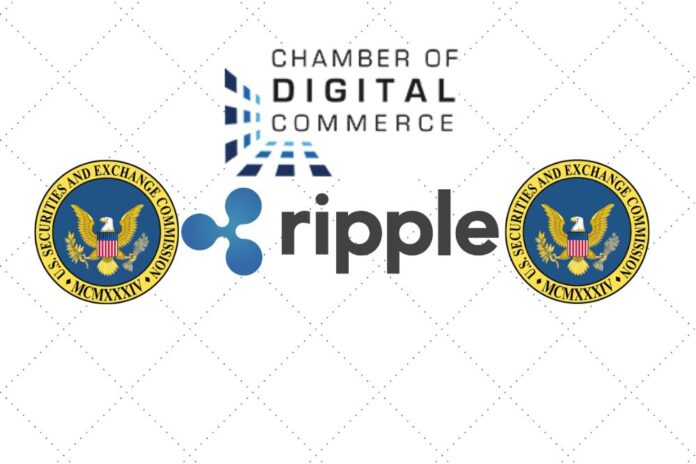In a recent publication, the Chamber of Digital Commerce (CDC), a prominent American crypto advocacy group, released an “impact and analysis” report shedding light on the significance of the SEC v. Ripple ruling for the crypto industry.
The report delves into Judge Analisa Torres’s ruling, which heralded a crucial legal precedent by effectively distinguishing between investment contracts and underlying assets.
The CDC noted that Judge Torres meticulously scrutinized Ripple’s XRP token distributions across three categories: institutional sales, programmatic sales, and other distributions. By applying the Howey test to each category and considering the relevant undisputed facts, the judge aimed to determine if Ripple’s XRP token distributions qualify as an offer and sale of investment contracts.
Read Also: SEC Supporter Fails To File Amicus Brief as Ripple Records 14 Legal Supports: Details
Interestingly, Judge Torres labeled Ripple’s direct past XRP sales to institutional clients as securities. However, she ruled that Ripple’s programmatic sales and other XRP distributions did not fall under the umbrella of securities transactions.
In response to the ruling, the CDC expressed its satisfaction with the court’s interpretation of digital asset classification, aligning with the arguments put forth in the amicus brief it filed in support of Ripple. The CDC emphasized how this case could establish a precedent for future legal battles, underlining the need for regulatory clarity in the industry.
We are on twitter, follow us to connect with us :- @TimesTabloid1
— TimesTabloid (@TimesTabloid1) July 15, 2023
Perianne Boring, the founder and CEO of the CDC, hailed the ruling as a significant milestone, stressing the importance of establishing clear and consistent rules for the digital asset sector. Boring also expressed optimism about the ongoing legislation related to the industry, stating, “We are also encouraged by the legislation also in play.”
While Judge Torres’ ruling provides a stepping stone towards sensible crypto regulations, the CDC insists that regulatory clarity must be achieved through effective legislation by Congress.
The advocacy group acknowledged the introduction of several regulatory bills pertaining to blockchain and digital assets in both the House and Senate. However, it remains skeptical about the likelihood of these bills being enacted due to constraints within the legislative calendar.
Read Also: Analyst Doubles Down On His Bullish XRP Price Prediction, Sets Price Target
With a commitment to creating a comprehensive legal framework for digital asset technologies, the Chamber of Digital Commerce will persist in advocating for sound policies that foster the United States’ leadership in the digital economy. The CDC’s focus lies in providing a level playing field for the digital asset industry and prioritizing both investor protection and innovation.
Looking ahead, the CDC supports the aim of regulatory bills currently in motion. However, it acknowledges the need for these bills to navigate the legislative process successfully. Consequently, the advocacy group will continue its efforts to ensure a clear route for firms to launch digital asset products while advocating for effective legislation that strikes the right balance between innovation and investor protection.
Follow us on Twitter, Facebook, Telegram, and Google News



